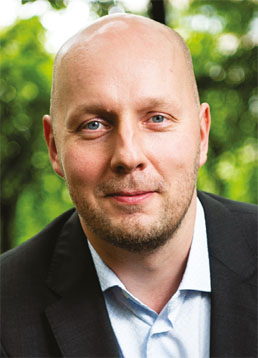Die Zeit, die ist ein sonderbar Ding, ’time is a wonderful thing’, sings the Marschallin in Richard Strauss’ opera The Knight of the Rose. The unions that publish Acatiimi have just turned or are about to turn 50 years old, and now it is the turn of The Union for University Teachers and Researchers in Finland (YLL). In 50 years, interest representation and the operational environment have changed shape, but we are still grappling with a few basic issues. Some objectives have been met, but we are still seeking new solutions with the negotiating parties for some other issues. The issue of lecturers’ research time, which was mentioned as an objective already in the early years of the union, is still current, only the form of the collective agreement is different today. Even though working time that is based on teaching duty is not in use anymore, in some units practices relating to teaching loads and to the availability of research time are still very similar to what they were in the previous century. Time and progress do not, then, move forward in the same pace.
The 50-year-old history of the union has seen many developments and milestones, and the ramifications of each of them are still visible today: joining The Trade Union of Education in Finland (OAJ) in 1986, the transition from working time that is based on teaching duty to the total annual working time in 1997, the new salary system, the new Universities Act 2010, industrial action 2018, just to mention a few. On the other hand, the articles of the book 50 vuotta YLL:n polkuja (50 years of YLL’s paths), edited by counselor of education Tuula Hirvonen, which is presented in this magazine, vividly display the achievements of the last decade, but also the failures. A model of periodic balance describes the development of interest representation well: sometimes long leaps, sometimes little alterations and enhancements. There is still plenty of work to do for future interest representatives.
In Aleksis Kivi’s play Heath Cobblers, Topias says to his son Esko: So the world changes, my dear Esko. As we work in interest representation, we increasingly face the challenge of motivating new actors to join and of making the interest representation work visible; we have to look for new ways and models of working. Interest representation that takes place in the context of trade unions no longer interests younger actors in the same way as before, and new actors are all the more difficult to motivate to join in the cross-pressure of various demands on time.
Unstable funding does not help with this. It is difficult to commit to working in the long run, if employment hangs on a short and unsteady fixed-term employment contract. The government platform did promise to invest 40 million euros in the basic funding of universities, but the latest information from the budget proposal of the Ministry of Finance is that the investment will be only 10 million; the university index is, as far as is known, still included. It will be interesting to see what happens in the budget session. The investment is, in any case, insufficient – ten million divided between thirteen universities is not a lot and it does not cover the effects of earlier cuts, let alone an additional investment. The additional places planned for different fields will make the situation even more difficult, as well as plans to fund lifelong learning, which continue to be unclear.
The Union for University Teachers and Researchers in Finland (YLL) has, throughout its entire existence, represented the interests of teachers at universities, regardless of titles. The work of teachers at universities is changing both in terms of content and realisation, and the need for interest representation has not decreased, it has only gained more nuances.

Santeri Palviainen
Chair, The Union for
University Teachers and
Researchers in Finland, YLL
Painetussa lehdessä sivu 48